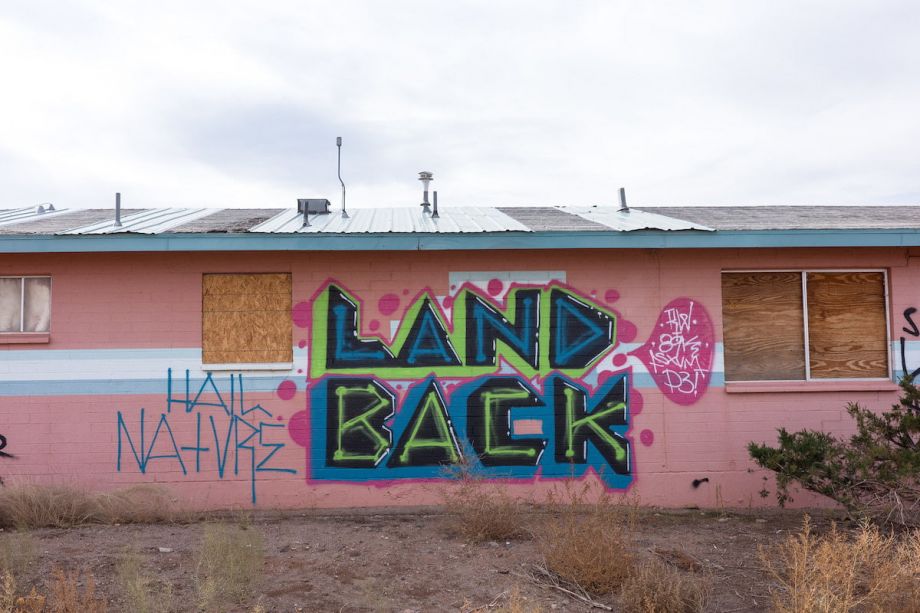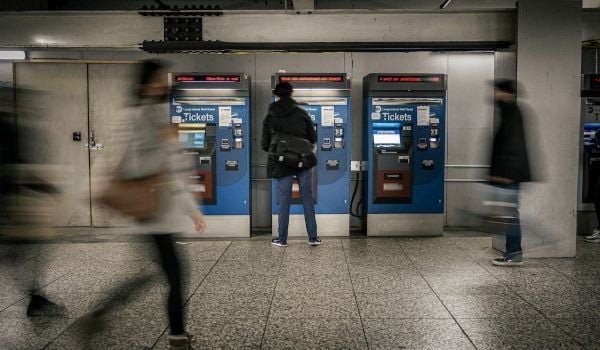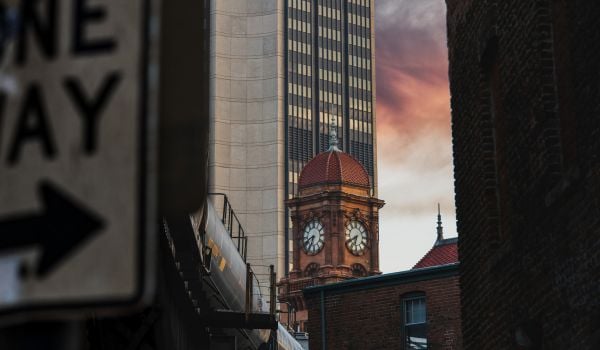Welcome to The Weekly Wrap, our Friday round-up of stories that explain the problems oppressing people in cities and elevate the solutions bringing us closer to economic, environmental and social justice.
California Indigenous Land Trust Gets Historic $20 Million Donation
Sogorea Te’ Land Trust, a Bay Area collective that works to return East Bay land to Indigenous hands, announced Monday that it has received a $20 million donation from the Kataly Foundation, which “moves resources to support the economic, political, and cultural power of Black and Indigenous communities, and all communities of color.” Sogorea Te’ notes that the donation is part of the Shuumi Land Tax, a voluntary contribution by non-Indigenous people living on Lisjan-Ohlone territory — also known as the East Bay — to support the trust’s work to transfer the land into collective ownership. According to a post on the trust’s Instagram page, “This is the single largest known cash gift to a Native land trust in history.”
Arizona Governor Announces Plan to Cancel $2 Billion of Medical Debt
Arizona Governor Katie Hobbs announced a plan on Monday to forgive medical debt for 1 million Arizona residents. The governor’s office referred to it as the largest medical debt relief initiative by a state in history. The state will provide $30 million in COVID relief funds to the nonprofit R.I.P. Medical Debt, which purchases debt from third parties for pennies on the dollar for public debt forgiveness campaigns. R.I.P. Medical Debt has wiped out an estimated $2 billion, according to Business Insider. The announcement comes after Connecticut Governor Ned Lamont announced a plan to cancel $650 million in medical debt in February. According to the Peterson Center for Healthcare and KFF (formerly the Kaiser Family Foundation), 20 million Americans owe a combined $220 billion in medical debt.
Federal Judge Rules Office for Minority-Owned Businesses Must Help White Business Owners
A federal judge in Texas issued an opinion on Tuesday that found the federal Minority Business Development Agency, which helps Black and Latino and other person of color-owned small businesses secure capital, loans and contracts, now has to offer help to small businesses regardless of race, negating the point of the office. According to the Washington Post, the judge’s decision cited last year’s Supreme Court court case banning race-based admissions over 30 times. Alphonso David, chief executive of the Global Black Economic Forum told the Washington Post, “Right-wing advocates will attempt to paint this decision with a broad brush to suggest it prohibits any public or private program that seeks to remedy past discrimination. It does not.”
Colorado Drought Deal Could Benefit Navajo Nation
Grist reports on two potential deals among states and tribal nations that access the Colorado River, which is facing a historic drought thanks to climate change. One plan would have the states of the river’s Lower Basin (Nevada, Colorado, Arizona) reduce water usage by 20% during certain years, which would address a “decades-old water deficit driven by Arizona and California.” A separate deal would deliver river water to the Navajo Nation which would benefit “tens of thousands” of Navajo homes, according to Grist. Previous legal arrangements have failed to provide the Navajo Nation with guarantees of this kind. The current deal for the river expires in 2026, and negotiators are hoping to secure a new deal before the presidential election, according to Grist.
Warren, Omar Criticize Banks for Alleged Anti-Muslim Practices
A letter directed to several large banks by Senator Elizabeth Warren and Representative Ilhan Omar criticized policies targeting Muslim Americans and people of color, The Hill reports. The letter was sent to executives at Chase, JP Morgan, Wells Fargo, Bank of America and Citibank. It follows up on findings in a report released last year that found that Muslim Americans found their bank accounts closed without explanation and were put under more scrutiny than non-Muslims. Muslim businesses and nonprofits were twice as likely to face scrutiny in their bank account compared to non-Muslims according to the report. The letter calls out “de-risking,” a practice where bank accounts are flagged for suspicious activity. The letter says that “public reports suggest that financial institutions, including your own, have continued to close customers’ accounts involuntarily and without basic notice” and asks for further information on its practices. The letter was also signed by Representatives Ayanna Pressley and Rashida Tlaib, Senator Bernie Sanders, and other congresspeople.
Curated by Deonna Anderson
MORE NEWS
-
In New York, supporters of the Faith-Based Affordable Housing Act are positioning the bill as one of the state’s best shots at passing meaningful housing legislation this year. City Limits
-
A proposed bill in Iowa aims to bring grocery options to underserved communities by setting up a dedicated fund and grant program for grocers. Smart Cities Drive
-
Research proves that bike lanes are good for business. So why do so many stores and restaurants still oppose them? Business Insider
-
CVS and Walgreens plan to begin selling abortion pill mifepristone at stores in several states this month. Reuters
RESOURCES
-
A new report by the Regional Plan Association finds that small investments and zoning adjustments would unlock latent transit-oriented development potential surrounding commuter stations in New York and New Jersey. Access the report here.
EVENTS
-
March 21 at 5 p.m. Eastern: Next City is partnering with fellow media organization Reckon for a powerful conversation examining the ongoing struggles for a safe environment in Black communities. Register here
-
March 21 at 6:30 p.m. Eastern: Dr. Margot Kushel will deliver the 23rd Annual John T. Dunlop Lecture. It’s titled The Toxic Problem of Poverty + Housing Costs: Lessons from New Landmark Research About Homelessness and is presented by the Harvard Joint Center for Housing Studies at the Harvard Graduate School of Design. Registration is required for in-person attendance and the lecture will also be streamed online. Learn more here.
This article is part of The Weekly Wrap, a newsletter rounding up stories that explain the problems oppressing people in cities and elevate the solutions bringing us closer to economic, environmental and social justice. Click here to subscribe to The Weekly Wrap newsletter.

Roshan Abraham is Next City's housing correspondent and a former Equitable Cities fellow. He is based in Queens. Follow him on Twitter at @roshantone.



















Add to the Discussion
Next City sustaining members can comment on our stories. Keep the discussion going! Join our community of engaged members by donating today.
Already a sustaining member? Login here.